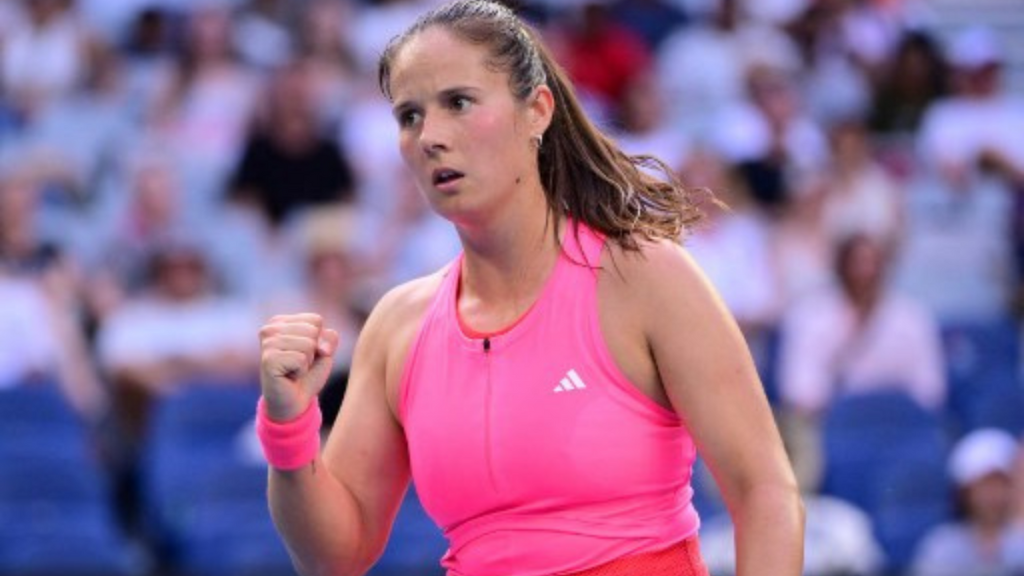Daria Kasatkina is a well-known figure in women’s tennis, recognized for her strategic playing style and determination on the court. As a former world No. 8 and a regular competitor on the WTA Tour, she has earned a reputation as one of the most skilled players from Russia.
In addition to her tennis accomplishments, Kasatkina has been vocal about social and political issues, which have influenced her to make a life-altering choice.
In a significant development that has drawn international attention, Kasatkina has made the decision to switch her national sporting allegiance from Russia to Australia. This choice, driven by personal and political motivations, underscores the significant challenges athletes encounter in complex social contexts. After publicly coming out as gay and criticizing the Russia-Ukraine war, Kasatkina found herself in disagreement with the authorities in her homeland. In search of safety, security, and a supportive community, she has decided to compete under the Australian flag.
WION explores the motivations behind Kasatkina’s departure from Russia, her reasons for choosing Australia, and the implications of this move for her career as well as the tennis world at large.
Who is Daria Kasatkina?
Daria Kasatkina is a professional tennis player from Russia who has consistently ranked among the elite in women’s tennis. Born in Tolyatti, Russia, she has gained acclaim for her skillful gameplay and tactical acumen, achieving a career-best ranking of No. 8 in the world. Over her career, she has secured multiple WTA singles titles and reached notable heights in Grand Slam events, including a semi-final appearance at the French Open in 2022.
Reasons for Leaving Russia
Kasatkina’s decision to leave Russia is linked to both political and personal factors. In 2022, she publicly came out as gay, placing her among a small number of Russian athletes to do so. In interviews, she discussed the difficulties faced by LGBTQ+ individuals in Russia, where their rights are heavily constrained. Following her announcement, she received mixed reactions, ranging from support to condemnation from some Russian figures.
Additionally, her outspoken opposition to Russia’s war in Ukraine further positioned her as a contentious figure in her home country, leading to concerns about potential repercussions upon her return. Criticism of the war in Russia has resulted in criminal charges for many public figures, creating a hostile environment for dissenters. With both her sexual identity and political views at odds with Russian officials, Kasatkina decided to relocate.
Why Australia?
Her choice to align herself with Australia was influenced by numerous factors. Australia has a notable commitment to supporting LGBTQ+ rights, providing a safer and more welcoming atmosphere for her. Unlike Russia, where LGBTQ+ individuals often face discrimination, Australia allows her to live openly and freely.
Moreover, Australia boasts a rich tennis heritage and offers robust support systems for athletes. Tennis Australia has embraced her decision, recognizing the advantages she brings to the sport. By becoming an Australian representative, she also enhances her prospects for training and sponsorship opportunities.
Implications for Tennis
Kasatkina’s transition to Australia bolsters the country’s representation in women’s tennis, as she is now its highest-ranked female player. This decision highlights broader conversations in sports regarding athletes’ rights, freedom to express their views, and the impact of geopolitical circumstances on sports careers. Her move is reminiscent of other athletes who have changed their nationality due to personal or political reasons.
With this transition, Kasatkina is set to continue competing at a high level, with fans eagerly anticipating her performance in future tournaments, especially at the Australian Open, where she will now have the full backing of her adopted nation. Her decision signifies not just a shift in sporting allegiance but also a strong statement for personal freedom, affirming that athletes are more than just competitors; they are individuals navigating intricate personal and political landscapes.



